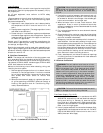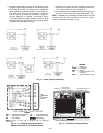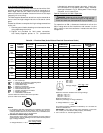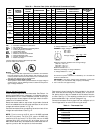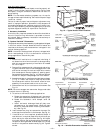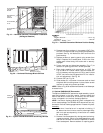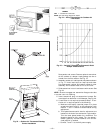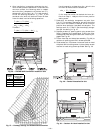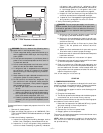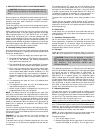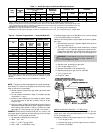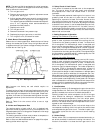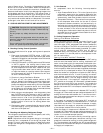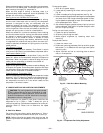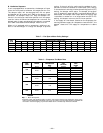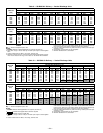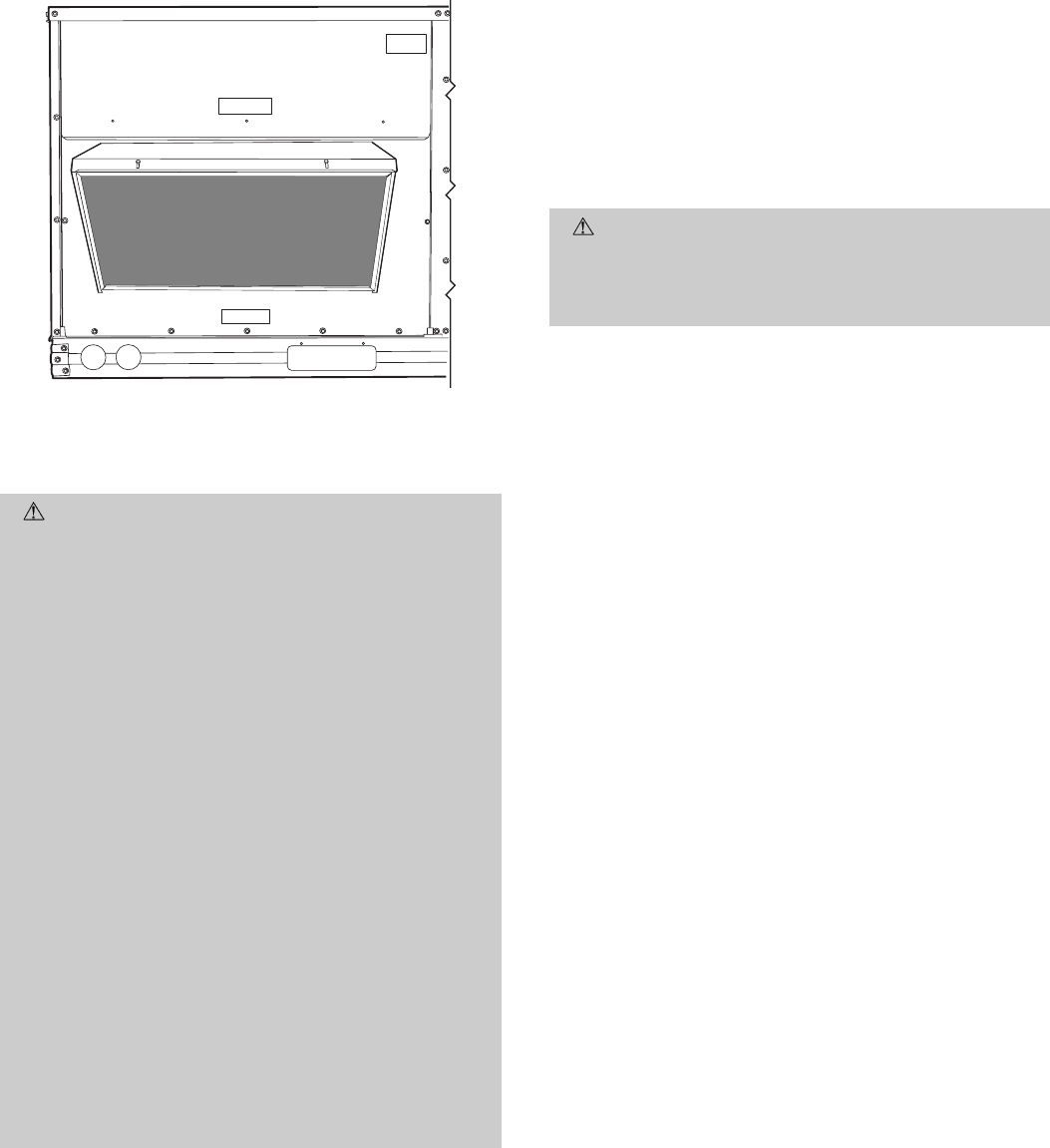
PRE-START-UP
WARNING:
Failure to observe the following warn-
ings could result in serious personal injury:
1. Follow recognized safety practices and wear pro-
tective goggles when checking or servicing refrig-
erant system.
2. Do not operate compressor or provide any electric
power to unit unless compressor terminal cover is
in place and secured.
3. Do not remove compressor terminal cover until all
electrical sources have been disconnected.
4. If refrigerant leak is suspected around compres-
sor terminals, relieve all pressure from system
before touching or disturbing anything inside ter-
minal box.
5. Never attempt to repair soldered connection while
refrigerant system is under pressure.
6. Do not use torch to remove any component. Sys-
tem contains oil and refrigerant under pressure.
To remove a component, wear protective goggles
and proceed as follows:
a. Shut off gas supply and then electrical power
to unit.
b. Reclaim refrigerant to relieve all pressure from
system using both high- and low-pressure ports.
c. Cut component-connecting tubing with tubing
cutter and remove component from unit.
d. Carefully unsweat remaining tubing stubs when
necessary. Oil can ignite when exposed to torch
flame.
Proceed as follows to inspect and prepare the unit for initial
startup:
1. Remove all access panels.
2. Read and follow instructions on all WARNING, CAU-
TION, and INFORMATION labels attached to, or shipped
with, unit.
3. Make the following inspections:
a. Inspect for shipping and handling damages, such as
broken lines, loose parts, disconnected wires, etc.
b. Inspect for oil at all refrigerant tubing connections
and on unit base. Detecting oil generally indicates a
refrigerant leak. Leak-test all refrigerant tubing
connections using electronic leak detector, halide torch,
or liquid-soap solution. If refrigerant leak is de-
tected, see Refrigerant Leaks section on page 30.
c. Inspect all field- and factory-wiring connections. Be
sure that connections are completed and tight.
d. Inspect coil fins. If damaged during shipping and han-
dling, carefully straighten fins with a fin comb.
4. Verify the following conditions:
DANGER:
Do not purge gas supply into the com-
bustion chamber. Do not use a match or other open flame
to check for gas leaks. Failure to adhere to this warn-
ing could result in an explosion causing personal in-
jury or death.
a. Make sure that gas supply has been purged, and that
all gas piping has been checked for leaks.
b. Make sure that condenser-fan blade is correctly po-
sitioned in fan orifice. Blades should clear fan motor
and fan orifice ring.
c. Make sure that correct air filters are in place. (See
Table 1.) Do not operate unit without return-air
filters.
d. Make sure that condensate drain pan and trap are
filled with water to ensure proper drainage.
e. Make sure that all tools and miscellaneous loose parts
have been removed.
f. Make sure outdoor-air inlet screen is in place.
5. Compressors are internally spring mounted. Do not loosen
or remove compressor holddown bolts.
6. Each unit system has 4 Schrader-type gage ports: one
on the suction line, one on the compressor discharge line,
and two additional Schrader valves located under the
high-pressure and low-pressure switches. Be sure that
caps on the ports are tight.
Unit is now ready for initial start-up.
START-UP
I. COMPRESSOR ROTATION
On 3-phase units it is important to be certain the scroll com-
pressor is rotating in the proper direction. To determine whether
or not compressor is rotating in the proper direction:
1. Connect service gages to suction and discharge pres-
sure fittings.
2. Energize the compressor.
3. The suction pressure should drop and the discharge pres-
sure should rise, as is normal on any start-up.
If the suction pressure does not drop and the discharge pres-
sure does not rise to normal levels:
1. Note that the evaporator fan (006 and 007 only) is prob-
ably also rotating in the wrong direction.
2. Turn off power to the unit.
3. Reverse any 2 of the unit power leads.
4. Reapply power to the compressor.
The suction and discharge pressure levels should now move
to their normal start-up levels.
NOTE: When the compressor is rotating in the wrong direc-
tion, the unit will make an elevated level of noise and will
not provide cooling.
Fig. 30 — Filter Installed on Outdoor-Air Hood
—17—



